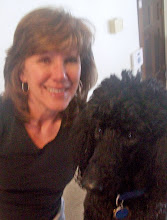This is a particular subject which I am passionate about--the relationship between oral language and the reading process itself. I have had the privilege of working as a "conversation partner" this past fall semester at our local community college with international students here in our country specifically to learn the English language. Not only is the relationship between oral language development and the reading process critical in the primary years, but it is also crucial to learning a new language at any age. For instance, the ESL students at the college ranged from 19 to 41 years of age, and came from a variety of language bases. Some second language learners were Arabic, some were Japanese, and a few were Chinese. All in all, these students attended classes five days a week with intense immersion in the English language as well as three days a week of guided English conversation with a tutor such as myself. Students rotated tutors as to learn to speak with a variety of Americans with differing speaking styles. I am amazed at how much English these international students would learn in a span of only a few months of their 18 month long program. I still keep in email contact with some of my former students. All of this to say, oral language development and the literacy process are deeply intermingled.
It's also been my privilege to have been born and raised in the central valley of California. My hometown of Porterville is now more than 50% Hispanic with my former elementary school being approximately 97% free and reduced lunch at this point in time. Our area is mainly agricultural and much of the farming depends entirely on the work provided by our local Hispanic families. Many of the children of these workers do not speak English in their homes. I've seen it happen time and again that when students do not have the opportunity to practice their newly acquired second language skills at home as well as at school, learning can be slowed; therefore, it is imperative that students receive the added conversational support at school (i.e. cooperative learning groups, one-on-one conversations, etc.) in order to practice their English skills. Moreover, most teachers in the local schools there still do not speak Spanish themselves which makes it important to have bilingual staff employed to translate school newsletters, telephone conversations with family members, parent/teacher conferences, etc. Consequently, the relationship between oral language skills and the encouragement of proficiency in the reading process relies heavily on expanding a student's listening and speaking abilities, too. They go hand-in-hand. Unfortunately, I also perceive that the full acceptance of the Hispanic population, at least in my hometown, hinges somewhat on their command of the English language in addition to Spanish. Many native English speaking residents can be very unaccepting of those who are "different." It is my greatest desire to ultimately teach at my old elementary school in the near future--I love working with ESL students.
Lastly, I had the opportunity to work with ESL students in Fort Morgan here in Colorado a couple years ago. I spent two months teaching first grade reading alongside a friend of mine in a class which only had two native English speakers. The remainder of the 18 students were all second language learners and mostly from low socioeconomic backgrounds. I would work one-on-one conversing and reading aloud to students who were struggling with the English language. This instruction was in addition to their routinely scheduled ESL pull-out program. What an exciting opportunity this was! There was a translator employed for all the first grade classrooms to enable teachers and families to better communicate. Again, oral language and the reading process were directly related to one another. Student success definitely depends on both.
In total, it is my opinion that oral language development and success at the reading process are dependent on one another. Students need the benefit of a comprehensive and balanced ESL program as well as the added opportunity to practice both listening and speaking skills to become proficient at a second language. Most importantly, cooperative group conversations with fellow students enables those new to English to learn more than working alone (Gibbons, 2002). Moreover, verbal skills provide second language learners with the bridge they need to master more difficult academic skills as well. Classroom talk is essential to a successful second language acquisition.
Subscribe to:
Post Comments (Atom)

Melinda,
ReplyDeleteI really appreciate your passion for this topic! You seem to have researched this area extensively and have had many opportunities by which to practice and interract with this growing population of students in our schools. I agree that the relationship between oral language and reading process co-exist. I am working to implement more classroom talk-continuing to make my teaching practice more student centered, and less teacher centered. Great Blog!
Thanks for the comments. I do love ESL! I look forward to your thoughts/suggestions in the future.
ReplyDeleteMelinda